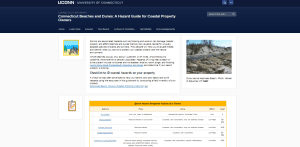
Connecticut Sea Grant launches website to help coastal homeowners
The website serves as a decision support tool. Connecticut Sea Grant announces a new website intended to assist coastal Connecticut beach property owners and beach
Scroll down to view posts

The website serves as a decision support tool. Connecticut Sea Grant announces a new website intended to assist coastal Connecticut beach property owners and beach
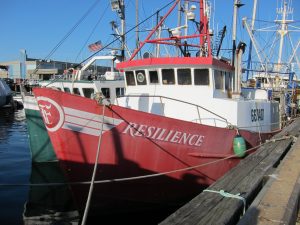
Here at MIT Sea Grant, we decided to create a directory of social scientists. We anticipated that this directory would be very valuable for scholars seeking expertise in other fields for interdisciplinary projects; for journals interested in identifying peer reviewers; for graduate students who need mentors or outside committee members; and for managers who have issues that would benefit from addressing social-cultural factors or other aspects of human dimensions.
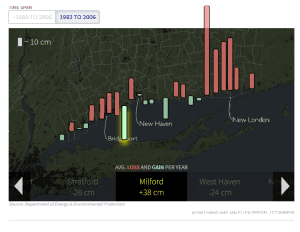
An important part of coastal resilience is understanding the dynamics of the shoreline, particularly, “How has the shoreline changed?” With funding from NOAA and National Sea Grant, a team from Connecticut Sea Grant, UConn CLEAR, UConn Extension and Connecticut Department of Energy and Environmental Protection took on an ambitious project designed to understand and quantify shoreline change in Connecticut over the last 100 years.
Describes Hawai‘i’s water resources, identifies troubling trends (i.e., declining rainfall, reduced stream flow, increasing temperature, and rising sea level), and provides 12 potential adaptive tools for adaptive management of those water resources.
This report provides a basic summary of the observed and projected changes to Hawai‘i’s ecosystems and their resulting impacts for the state’s residents.
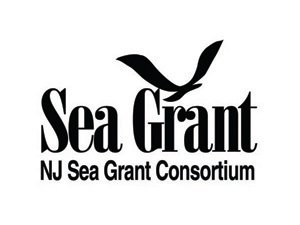
Using modeling techniques, students discover how coastal dunes form and how they can protect coastal areas from erosion and flooding during storms and harsh weather events. Students will make predictions and observations, then come to their own conclusions about the importance of dunes and how they can make coastal areas more resilient against storms.




In this activity students will build a model of a salt marsh and the land surrounding it out of clay. Students will use this model to see what happens to salt marshes when the sea level rises and how the slope of the land and the location affect the marshes survival.




Students study the essential parts of the Cape American Beach Grass Ammophila breviligulata and discover the basic necessities for plant survival.
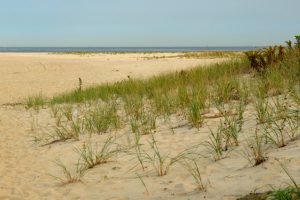

The Dune It Right manual explains dune ecology. This tool is for anyone undertaking a dune restoration or rehabilitation project. It explains what species uses what parts of the beach, how to avoid damaging habitat and how to avoid creating a monoculture.
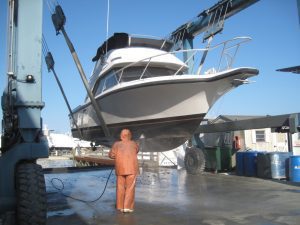

As part of the National Sea Grant Coastal Communities Climate Adaptation Initiative (CCCAI), NJSGC is developing and implementing an education and outreach campaign designed to promote long term planning that will educate waterfront property owners and associated businesses about the need to gain an understanding of climate change and consider the potential impacts associated with it when planning for the future.
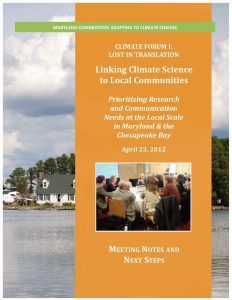

Scientists in Maryland have published numerous studies on the impacts of climate change on the Mid-Atlantic region, but communicating the results of that research has proved difficult. Many residents in the state’s coastal communities lack a good understanding of the risks that climate change and sea level rise in particular pose to their way of life. In 2012, Maryland Sea Grant held a statewide climate change forum to inform efforts to share and discuss the findings of climate science with these communities.
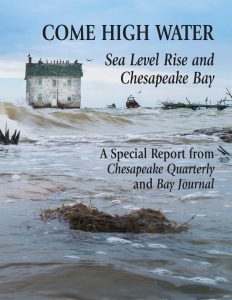

Along much of the Mid-Atlantic coast, sea levels are rising faster than the global average. This trend has already been linked to intensifying storm surges, shoreline erosion, and the loss of wetlands in the Chesapeake Bay region. To educate residents of Maryland about the impacts of sea level rise and climate change in the Chesapeake region, Maryland Sea Grant formed a unique partnership with the regional news magazine, Bay Journal. This partnership resulted in a special issue of Maryland Sea Grant’s magazine, Chesapeake Quarterly, that was published in October 2014 and titled “Come High Water: Sea Level Rise and Chesapeake Bay.”
“The Spectrum of Coastal Erosion Control Methods” provides information about the various methods of erosion control and compare their relative impacts.
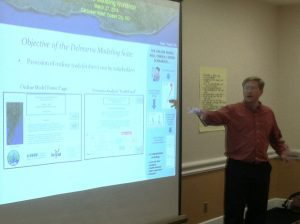

Maryland Sea Grant supported a research project to develop a Nutrient Loading Model for the Delmarva Peninsula. Other collaborators and funders on the effort included Sea Grant programs in Delaware and Virginia.
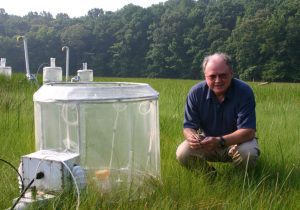

Maryland’s coastal wetlands provide diverse ecosystem services for the Chesapeake Bay region, reduce flooding risks, and help to improve local water quality. These natural communities, however, also face threats from rising sea levels and invasive species. Of particular concern is the non-native reed Phragmites australis, which has displaced native marsh grasses in many Mid-Atlantic wetlands in recent decades. To inform the management of this invasive reed, Maryland Sea Grant funded research to better understand how climate change might affect the growth of Phragmites populations around Chesapeake Bay.
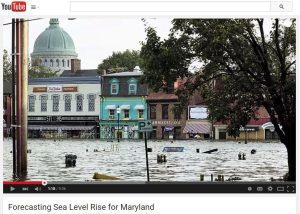

Maryland Sea Grant produced a nine-minute online video documentary that describes scientific research about the causes of rising seas in the Chesapeake Bay region.
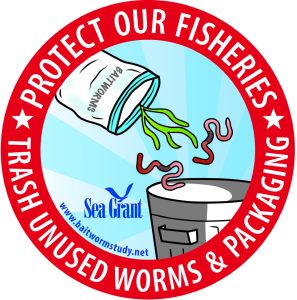

The introduction of aquatic invasive species to Chesapeake Bay, transported through the ballast water of cargo ships or by live animal and plant trades, can bring ecologically harmful consequences. To safeguard local ecosystems, Maryland Sea Grant supports programs that seek to prevent the establishment of new invasive species in the region.
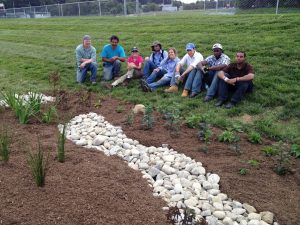

Maryland and other states in the Chesapeake Bay watershed are currently engaged in a multi-billion dollar effort to improve water quality by meeting Total Maximum Daily Load (TMDL) targets for nutrients and sediments. To accomplish this, municipalities around the region need help from trained and dedicated volunteers who can implement watershed restoration practices. Such practices include stormwater management tools like rain gardens and barrels.
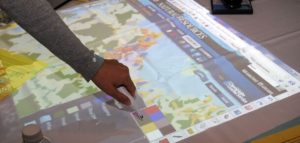

With support and training from Texas Sea Grant, Maryland Sea Grant Extension employs the weTable tool to facilitate decision-making processes in a range of communities.
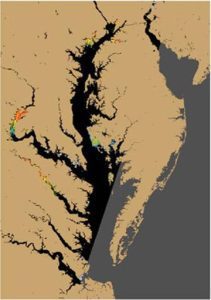

In May 2014, Maryland Sea Grant, in partnership with the NOAA National Centers for Coastal Ocean Science (NCCOS), held a workshop to explore the use of remote sensing for detecting harmful algal blooms in the Chesapeake Bay region.
New York Sea Grant’s Great Lakes Coastal Processes and Erosion homepage provides information focused on the educational needs of New York’s Great Lake’s shoreline property owners, resource users and decision makers, marine contractors, and recreational boaters.
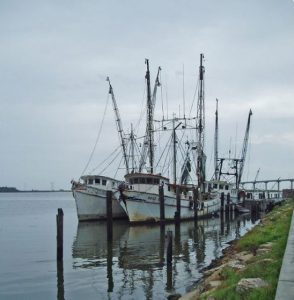

This website contains information, data, and tools that individuals, communities, and governments at all levels can use to develop, inform, and enhance their sustainable working waterfront initiatives.
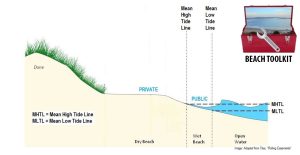

Part of the Florida Water Access site, the Beaches Toolkit contains an outline of common law tools for addressing public beach access, as well as resources for public and private managers of beachfront property.
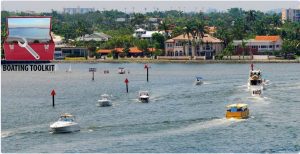

Part of the Florida Water Access site, the Boating Toolkit contains legal information about rights of navigation, anchoring and mooring, boating laws and regulations, derelict vessels and conservation.
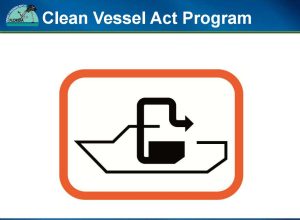

This site discusses both the Florida Clean Marina Program, the Florida Clean Vessel Act Program and the available funding opportunities.
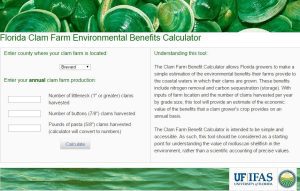

The Clam Farm Benefit Calculator allows Florida clam growers to make a simple estimation of the environmental benefits their farms provide annually to coastal waters.
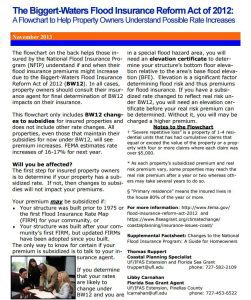

This site provides answers for homeowners regarding flood insurance costs, purchasing flood insurance and ways to reduce insurance premiums.
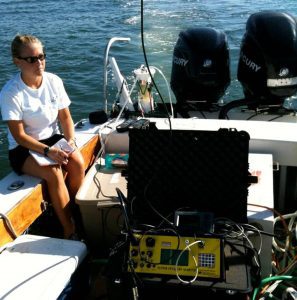

A large percentage of South Carolina’s economy is driven by the popularity of beaches as tourist destinations. Hypoxic (low-oxygen) conditions have been documented in the nearshore coastal waters of Long Bay, South Carolina, during summer months over the past several years. To maintain a healthy environment for recreation it is necessary to assess the impacts of land use on groundwater discharge to the area. Researchers measured radon activities of shallow beachface groundwater and nearshore bottom waters to estimate mixing rates and submarine groundwater discharge in Long Bay. They successfully developed a mixing model based on these measurements, which helped determine that natural phenomena such as limited mixing and submarine groundwater discharge (both previously overlooked) can significantly influence nearshore water quality and lead to hypoxic conditions. This model can be applied to other types of marine environments to help determine the causes of hypoxia, and as such could be a valuable tool in maintaining coastal water quality, especially in highly developed (urban) areas.
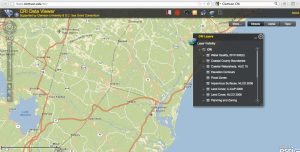

Community leaders, decision-makers, and staff need detailed knowledge of the resources their community possesses in order to make informed planning decisions that enhance the community while protecting the quality of the environment. Developed in partnership with Clemson University’s Baruch Institute of Coastal Ecology and Forest Science, the S.C. NEMO Program, Carolina Clear, and the North Inlet-Winyah Bay National Estuarine Research Reserve, the Community Resource Inventory provides an atlas of natural and cultural resources available in South Carolina coastal communities.
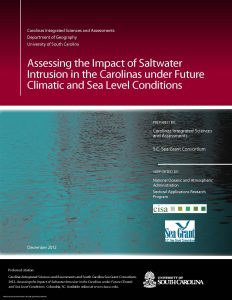

Reduced river flows during drought threaten fresh water supplies in coastal areas because the lower flows allow the salt water wedge to penetrate further inland from estuaries than is normal. During droughts over the past decade, some coastal drinking water systems and industries monitored threats to fresh drinking water and industrial water intakes due to this salinity intrusion; some have even had to periodically take intakes offline due to high salinities that can damage drinking water treatment systems and industrial equipment. To help decision-makers understand how the frequency of salt water intrusion events may change under future precipitation and sea level scenarios, the S.C. Sea Grant Consortium, the Carolinas Integrated Sciences and Assessments center at the University of South Carolina, and the USGS S.C. Water Science Center adapted an existing decision support system for salinity intrusion in the coastal Yadkin-Pee Dee river basin by adding climate model-based precipitation scenarios and increments of sea level rise to the Model 2 (PRISM2) decision support tool. This modification is significant in that it allows water managers to explore how often salt-water intrusion events may occur in the Yadkin-Pee Dee River basin under conditions influenced by ongoing and future climatic change.
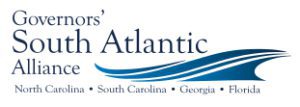

The Governors’ South Atlantic Alliance (GSAA) Data Portal is an online toolkit and resource center that consolidates available state, regional, and federal datasets into one location for Florida, Georgia, South Carolina, and North Carolina. This allows users of the Portal to learn about the region’s data resources, explore a robust repository, and visualize these data via the Portal tools. Developed by the Southeast Coastal Ocean Observing Regional Association (SECOORA) with NOAA support through the S.C. Sea Grant Consortium, the GSAA Portal provides a foundation for long-term collaborative planning in the South Atlantic region for a wide range of coastal uses.
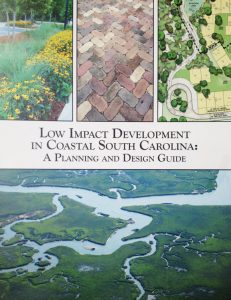

Many coastal decision-makers lack the expertise, guidance, and resources to implement low impact development (LID) techniques for mitigating stormwater impacts. The S.C. Sea Grant Consortium assisted with the development of an LID manual specific to coastal South Carolina that provides guidance on overcoming barriers to implementing best management practices. The project team organized stakeholder workshops, research roundtables, and provided technical assistance with the development of the guide.
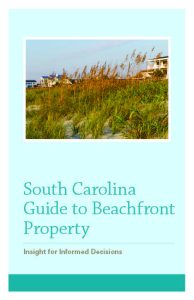

Many residents of South Carolina and beyond aspire to live at the beachfront. To better prepare people seeking beachfront homes (as well as those already enjoying life at the beachfront) regarding specific hazards and regulations, the S.C. Department of Health and Environmental Control Office of Ocean and Coastal Resource Management, with significant contributions from the S.C. Sea Grant Consortium, has produced the South Carolina Guide to Beachfront Property. Included is information on typical hazards homeowners are likely to face (hurricanes, erosion, flooding, wind, and earthquakes), insurance information, and important state regulations regarding construction and renovation practices.
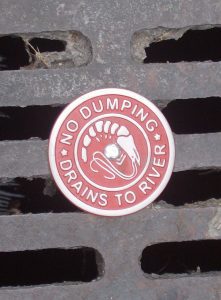

With the vast majority of land-use decisions made at the local level, community officials are instrumental in influencing and directing development and conservation efforts. The S.C. Coastal Communities Initiative is a collaborative land-use planning and water quality small grants program for local decision-makers. The purpose of the Initiative is to assist coastal communities with the development and implementation of land management policies and practices to reduce polluted stormwater runoff, protect local natural resources, and encourage sustainable development. Coastal communities participating in the Initiative are eligible to receive grants ranging from $2500 to $5000 to address a variety of issues related to open space preservation, natural resource-based planning, water quality management, alternative transportation, sustainable community planning and design, and zoning ordinances and regulations.
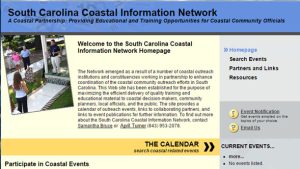

Forging and maintaining outreach and education partnerships is vital to building and sustaining effective and pertinent outreach programming. The South Carolina Coastal Information Network (SCCIN) enhances coordination of coastal community outreach efforts in South Carolina by avoiding duplication of efforts and minimizing the number of meetings/workshops that community leaders and staff are asked to attend, leveraging scarce resources, and maximizing program benefits and expected outcomes. Through the SCCIN, members strive to provide quality training and educational materials to coastal decision-makers and the public in an effective and efficient manner.
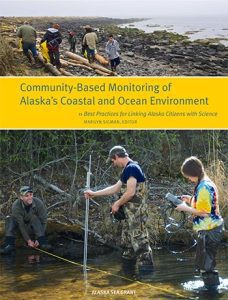

A handbook to help Alaska communities, scientists, and agencies implement best practices for new and continuing community-based monitoring programs.
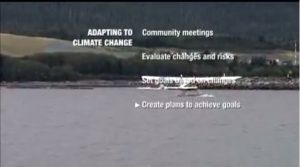

This video describes steps some communities are taking to maintain their lifestyles in the face of climate change.
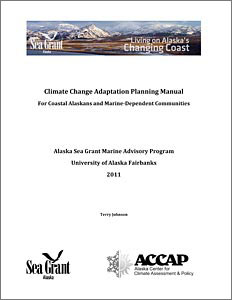

This manual is for Alaska extension professionals, community organizers, local planning officials, and teachers, whose task is to help individuals, families, businesses, communities, and local governments think through the meaning of climate change on the local scale.
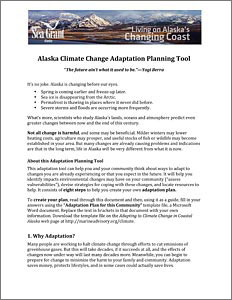

This adaptation tool will help Alaska community residents identify impacts from environmental changes, devise strategies for coping with the changes, and locate resources to help.
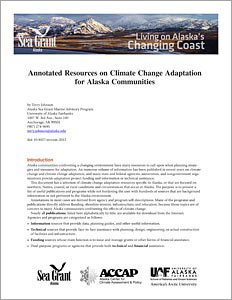

These climate change adaptation resources are useful to community residents and professionals who are planning strategies for adaptation.
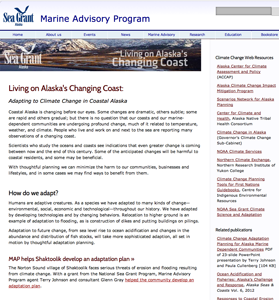

Alaska Sea Grant’s climate adaptation website has links to Alaska-specific climate change fact sheets, videos, Powerpoint presentations, other publications, and websites of other organizations and resources.
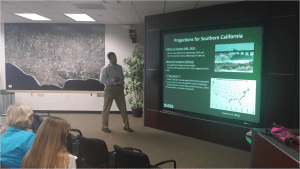

The Santa Barbara Area Coastal Ecosystem Vulnerability Assessment for Local Communities (SBA CEVALC) is aimed at assisting the Cities of Santa Barbara, Carpinteria, and Goleta and the County of Santa Barbara in planning for adaptation to climate change. Three of the state's leading ecological and climatological research programs including: the UCSB Coastal Long-Term Ecological Research Project, the Scripps Institution of Oceanography and USGS, are accomplishing the project in close collaboration with the three cities and County. Community input is integral to the project with staff from relevant city/county departments participating through workshops and review.
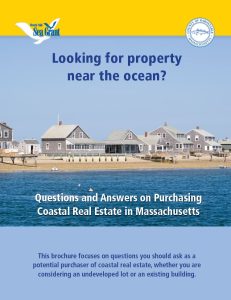

Are you considering buying property near the water? A new brochure from Woods Hole Sea Grant, Questions and Answers on Purchasing Coastal Real Estate in Massachusetts is now available. This brochure focuses on questions you should ask (and where to find the answers) as a potential purchaser of coastal real estate. This resource provides information about permitting, erosion and erosion control structures, flood insurance, and much more.
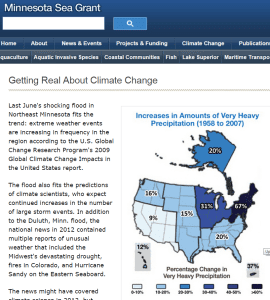

The purpose of this assessment tool is to provide community leaders, administrators, planners, engineers, public work directors, and natural resource managers with a simple method in the form of a checklist divided into nine different categories to review their community's particular vulnerabilities to climate trends and to identify priority areas to focus on through planning and projects. The goal of this tool is to help communities in the Great Lakes region identify and address vulnerabilities through education and planning to help reduce the impacts and costs of climate change-related damage through adaptation policies and procedures.
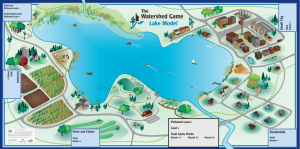

The Watershed Game is an interactive tool that helps community leaders understand the connections between land use, clean water and their community. Participants learn how a variety of land uses impact water and natural resources and learn how their choices can prevent adverse impacts.
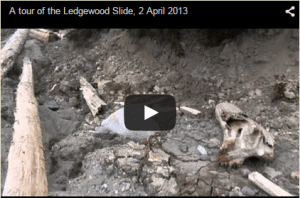

After the March 2014 Oso landslide, Washington Sea Grant communications staff volunteered at the site to provide communications support during disaster response. After the 2013 Whidbey Island landslide, a Washington Sea Grant-installed camera monitored continuing land movement.
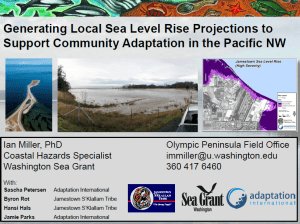

Washington Sea Grant is leading an effort to improve estimates of vertical land movement in Washington State, that will be used to improve sea level rise and coastal flooding assessments.
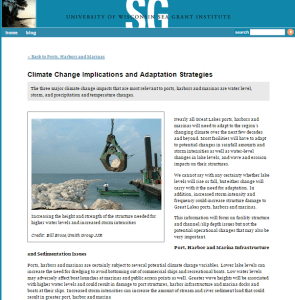

The Port Asset Matrix helps communities appraise the current value of their navigational and port infrastructure, allowing them to project the potential costs of maintaining or replacing these resources in the face of changing water levels and storm conditions caused by climate variation.
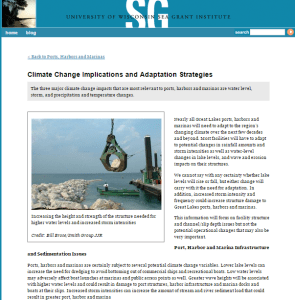

This checklist of climate-related decision points can help coastal communities smoothly integrate climate change data into their ongoing planning processes.
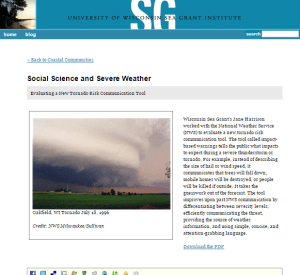

Wisconsin Sea Grant, in conjunction with the NOAA Great Lakes Coastal Storms Program, conducted a survey to learn the planning and implementation needs of Great Lakes coastal planners and managers to mitigate and adapt to coastal storm hazards.
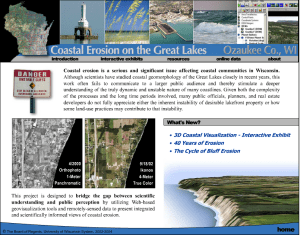

This project integrates animation, aerial photography, pictures, charts, and text to help the public better understand: (1) the natural process of coastal erosion; (2) how local land development decisions impact coastal erosion; and (3) the case for scientifically-based coastal development setbacks
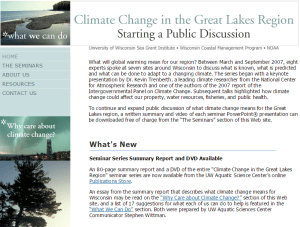

This Wisconsin Sea Grant fact sheet offers some adaptation strategies for adapting to the impacts of climate change on shipping and boating infrastructure.
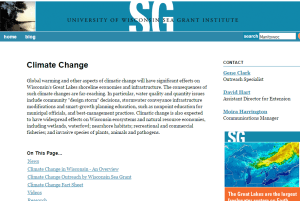

Storm transposition is being applied in the Manitowoc River watershed to demonstrate why Wisconsin communities should invest in building resilience to climate change.
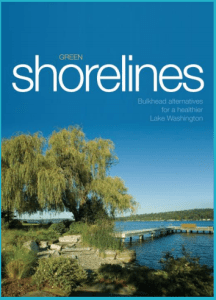

With funding from the EPA, Sea Grant partners with the City of Seattle among others to offer an incentive and certification credit system developed for single family homes. The goal of this voluntary program is to develop shoreline sustainably, using green vs. grey infrastructure whenever possible
Washington Sea Grant, in partnership with the Jamestown S’Klallam Tribe and the University of Washington Program on the Environment, is developing an outreach plan for a group of homes on the Strait of Juan de Fuca, Washington State, that have been identified as highly vulnerable to sea level rise and coastal flooding. The outreach plan will try to identify ways to work with homeowners to identify options that will both protect their infrastructure and investment, while avoiding hard armoring and shoreline engineering.
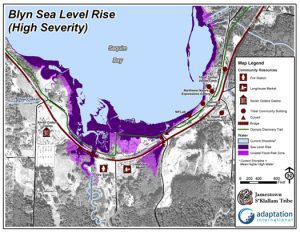

Washington Sea Grant partnered with the Jamestown S'Klallam Tribe and Adaptation International to develop a set of local sea level rise projections, and sea level scenario maps for the Jamestown S'Klallam community. The assessments are being used to identify priority adaptation actions, tribal areas or resources that are particularly vulnerable to sea level rise, and have also been integrated into community long-term planning. Additionally, Washington Sea Grant is partnering with North Olympic Peninsula Resource Conservation District and Adaptation International on a multi-sector climate change vulnerability assessment and adaptation plan, including sea level rise and coastal flooding projections for coastal communities in Clallam and Jefferson Counties.
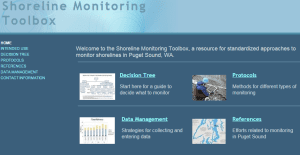

Washington Sea Grant, working with the Puget Sound Partnership and Puget Sound Ecosystem Monitoring Program Nearshore Work Group, has standardized approaches for monitoring and a “toolbox” of protocols and information. The toolbox emphasizes methods that are simple and affordable, and that can be used for monitoring restoration sites and evaluating status and trends.
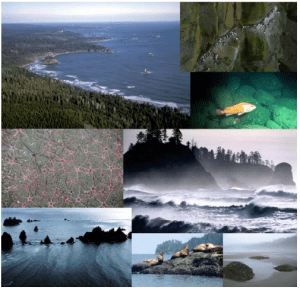

Washington Sea Grant led the development of the Olympic National Marine Sanctuary (OCNMS) Climate Change Assessment, which examined the vulnerability of sanctuary resources to climate change. The report, intended for OCNMS staff, the OCNMS advisory committee, and the Intergovernmental Policy Council, is being used as a springboard for climate change adaptation activities in the sanctuary, and adjacent (mostly tribal) communities.
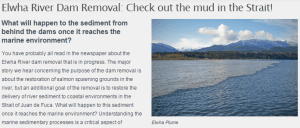

Dam removal on the Elwha delta has led to a massive flux of sediment to the coastal zone, leading to what is in effect the largest beach nourishment experiment ever in Washington State. Washington Sea Grant, in collaboration with the US Geological Survey, the Lower Elwha Klallam Tribe and others, is investigating the fate of that sediment and particularly how it acts to re-nourish eroding beaches. The results can be applied to problems associated with beach erosion due to climate change and sea level rise.


King Tides, or extreme high tides, offer the chance to view what the future might look like with higher sea levels. The King Tides Project directs citizens to capture images of King Tide events and upload them onto the website. The Washington King Tides project is part of an international collaboration.
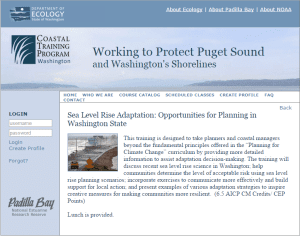

Washington Sea Grant, in collaboration with the Climate Impacts Group and the Department of Ecology offered a course through the Padilla Bay NERR’s Coastal Training Program on sea level rise adaptation. Building on the 2008 basic climate change course, this sea level rise course offered up to date scientific projections on sea level rise rates in the Padilla Bay NERR, in addition to methods to effectively communicate climate change, various planning opportunities in Washington, and examples of what others around the US have done. This course is the second in a series of climate adaptation courses.
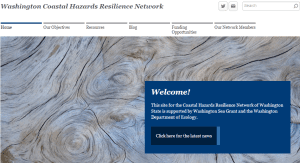

Washington Sea Grant, in collaboration with the Department of Ecology and with funding from NOAA, has developed a Coastal Hazards Resilience Network. The primary function of the network is to increase coordination and collaboration among state, federal and academic experts responsible for managing coastal hazards along the Washington Coast. The network is then applied at the local level to increase the resilience and capacity of local communities to plan for a respond to natural hazard events.
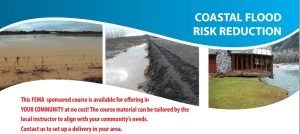

Washington Sea Grant staff members are certified to teach the FEMA-certified Coastal Flood Risk Reduction Course. This performance level course is designed to provide an introduction to flood-risk reduction opportunities within coastal communities.
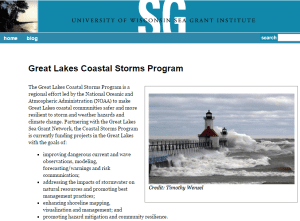

Wisconsin Sea Grant hosts the Great Lakes Coastal Storms Program website which provides resources, program updates and information related to the four primary goals of the program.
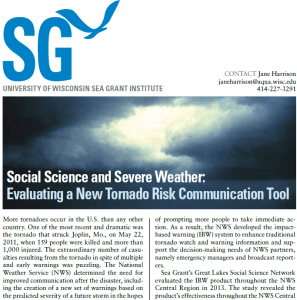

Wisconsin Sea Grant worked with the National Weather Service to evaluate a new tornado risk communication tool.
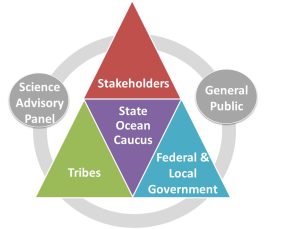

As a member of the State Ocean Caucus, Washington Sea Grant is a member of the State planning team charged by the State legislature to develop a marine spatial plan off Washington’s outer coast. The plan will provide better baseline information, ecosystem indicators, analyses to support coastal management decision-making, recommendations for siting new uses, implementation framework across agencies and sectors, integration of other existing policies and management and an adaptive management strategy. Washington Sea Grant plays a central role in this process by leading outreach, coordinating scientific review of data and projects, developing indicators of human well-being and economic health of the coast.
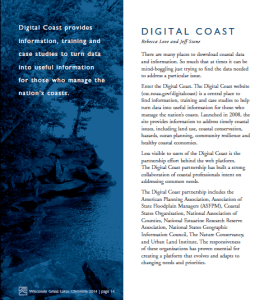

Wisconsin Sea Grant helped with design and development recommendations for the Lake Level Viewer.


Classes, workshops, tours, displays, and web materials are provided to educate community members about practices they can employ on residential properties to reduce storm water impacts to receiving waters. The practices and information provided incorporate climate change adaptation benefits.
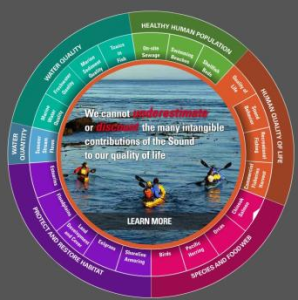

This report is a regional social science collaboration highlighting the gaps in knowledge related to people and marine environments. Robust social science is a fundamental aspect of ecosystem-based management; and moreover, provides necessary information for understanding resilience and vulnerability to human populations.
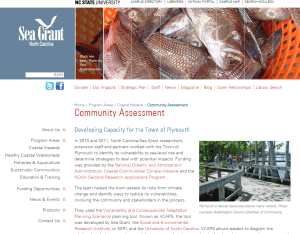

Through the Vulnerability, Consequences, and Adaptation Planning Scenarios (VCAPS) process, North Carolina Sea Grant provides a variety of research and capacity-building initiatives to assist communities in assessing risks and providing support for developing approaches to manage that risk as appropriate.
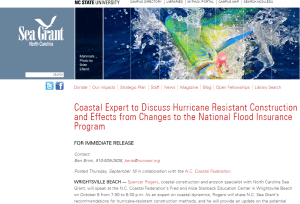

Officials at the state and local level, as well as property owners, seek North Carolina Sea Grant for technical expertise and to work with federal partners to find solutions for new and existing building adaptations that result in increased community resilience.
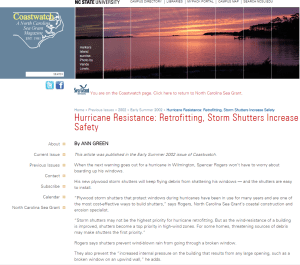

North Carolina Sea Grant extension partners with the N.C. Department of Insurance and the Institute for Businesses and Home Safety Fortified training program to increase building and design standards, including workshops to train builders, as well as training for building code inspectors and other professionals.
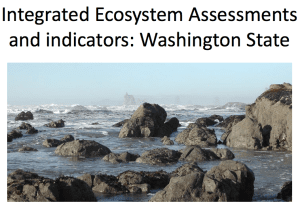

The emerging human wellbeing model is a comprehensive look at the material, relational, and subjective ways that the socioeconomic wellbeing of individuals and communities is tied to marine and coastal resources. The model provides a process for selecting indicators to measure human wellbeing.
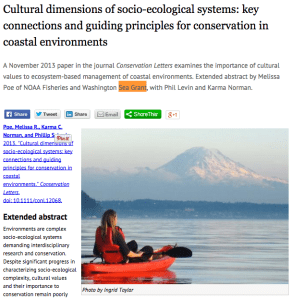

The cultural dimensions of coastal ecosystems framework and guidelines for best practices is a conceptual tool to guide scientists, managers and community practitioners in their efforts to: (1) identify potential cultural impacts in impacted areas; (2) select and develop methods for working with communities to characterize their cultural impacts. Cultural aspects are often ambiguous and moreover absent from vulnerability and resilience assessments and this guidelines offers clear and specific identification of cultural aspects that have been or could be impacted in events.
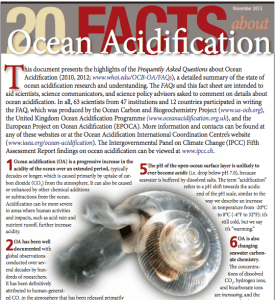

Washington Sea Grant, in partnership with state, federal (NOAA) and international scientists and communication experts have released two ocean acidification fact sheets as aids for scientists, science communicators and science policy advisors asked to comment on acidification: “20 Facts About Ocean Acidification” (Nov 2013. revised Feb 2014) and “Ocean Acidification in the Pacific Northwest” (May 2014). They have also been instrumental in the development of NOAA's Sharing Ocean Acidification Resources for Communicators and Educators (SOARCE) webinar series (8 presentations in 2014).
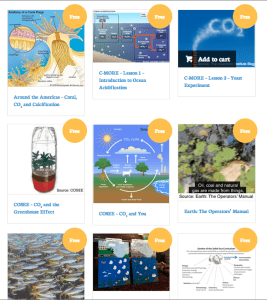

Washington Sea Grant, in partnership with the Suquamish Tribe, and with assistance from teachers, and state and academic education specialists, is developing a curated online collection of Ocean Acidification curricula, teaching tools, and informational resources for high school, middle school and elementary classrooms. The online collection, which will launched in Oct 2014, can be searched using a variety of filters, such as grade band, subject, type of material (i.e. lab activity, presentation, reading and analysis, etc.), and length of activity. This effort supports coastal resilience by building ocean acidification literacy.
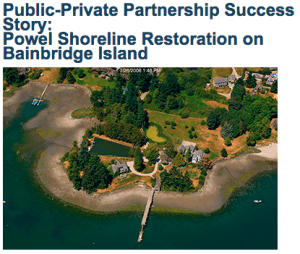

In Puget Sound, shoreline armoring is being removed or is being replaced with what are thought to be less disruptive alternatives. Restoring physical and biological connections in the nearshore where structures are not at risk is expected to improve habitat conditions and reduce long-term costs for homeowners. By establishing volunteer monitoring of these sites, Washington Sea Grant has helped create a baseline for erosion and vegetation that can be used to inform other projects and shoreline management decisions in the near-term and provide a long-term reference as climate change and sea level rise influence conditions in the nearshore.
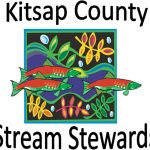

In collaboration with Washington Land Grant partners, Washington Sea Grant provides training, resources and opportunities to volunteers interested in learning about freshwater environments and the watershed and marine systems to which they are tied. The volunteers then contribute to improving their communities through monitoring, enhancement, restoration and outreach.
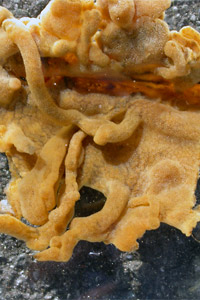

Preventing the introduction and spread of aquatic invasive species is the only way to eliminate associated ecological and economic damages. Where prevention measures fail, early detection of a newly established population offers the best hope of effectively reducing impacts. By working formal and informal education settings to encourage prevention measures and by establishing a network to monitor marine waters for key species of concern, Washington Sea Grant aims to prevent and reduce economic and ecological harm for coastal communities.


These workshops are designed to bring confidence to homeowners and businesses so that they can properly manage their on-site sewage systems. The workshops focus on the monitoring and maintenance of septic systems during all conditions and highlight special monitoring after an earthquake, during flooding events and power outages.
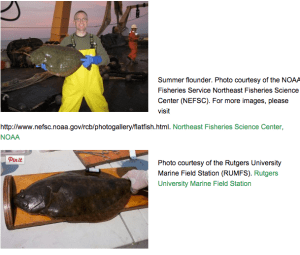

Mid-Atlantic Sea Grant research funded a project that is looking at the shifting distribution of summer flounder under climate change conditions, including some bio-economic modeling to examine the economic impact of that shift.
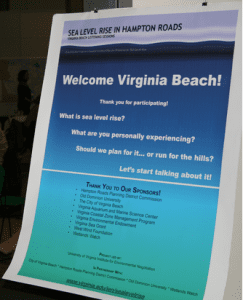

The lead coordinating organization is Wetlands Watch, working with architects at Hampton University, builders from the Hampton Roads Green Building Council, Urban Land Institute, and a suite of engineers. They are focused on Chesterfield Heights neighborhood in Norfolk, and will be creating specific designs for a more resilient Chesterfield Heights.
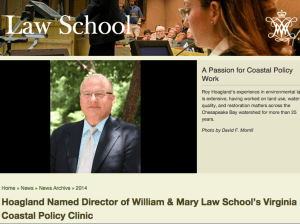

Virginia Sea Grant has a legal program now and they have been focusing on resiliency issues—conducting legal and policy research for local community clients on issues such as flood insurance, community rating systems, potential disclosure issues, potential local community liability risk associated with not taking adaptation steps. They have also provided analysis to the Governor’s Climate Commission that is currently underway and the General Assembly’s Secure Commonwealth Panel that finished up work last month.
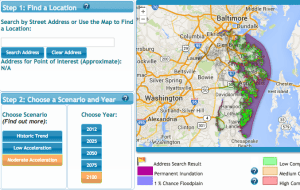

This was developed through a mid-Atlantic Sea Level Rise project we secured from Coastal Services Center (CSC). It was applied in Annapolis, and they explored its application in Hampton Roads, but it was too early in the evolution of the issues in Hampton Roads to use here. That is, this tool shows climate impacts at the individual lot level and the Hampton Roads citizenry and local elected officials were not ready to see, hear, realize that then (~2011). We are ready now and because we took an incremental approach with our community, we have been able to leap frog some of the challenges that other states faced and Fall 2014 we held a workshop with the real estate community.
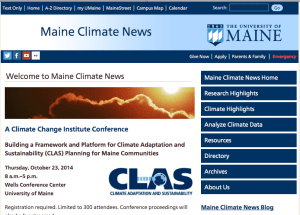

Recognizing the need for a centralized, neutral source of climate information specific to Maine, University of Maine Cooperative Extension and Maine Sea Grant created Maine Climate News in partnership with George Jacobson, Maine State Climatologist, in 2009. The site is intended to be a portal to climate change science and research at the University of Maine and beyond, as well as a resource for news and climate-related activities throughout the state. The site is updated quarterly.
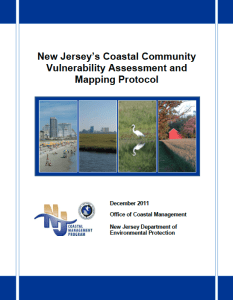

This document is intended as a guide for entities interested in assessing their vulnerability to coastal hazards. Coastal vulnerability is a complex topic that requires an understanding of some basic terms, concepts, and historical context to be effectively assessed.
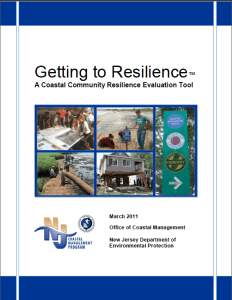

A survey instrument that helps a community characterize its resilience through the connectivity of the community's various planning documents.
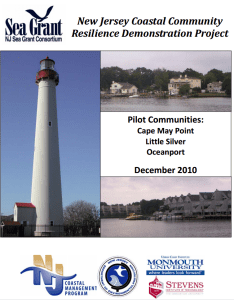

Coastal communities across the nation are faced with the challenge of how to adapt to coastal inundation associated with climate change and sea level rise. As part of the National Sea Grant Coastal Communities Climate Adaptation Initiative (CCCAI), the New Jersey Sea Grant Consortium (NJSGC) and its partners, New Jersey Department of Environmental Protection Office of Coastal Management (NJOCM), Monmouth University Urban Coast Institute (UCI) and Stevens Institute of Technology, conducted community-based, climate adaptation demonstration projects in Cape May Point, Little Silver and Oceanport, New Jersey.
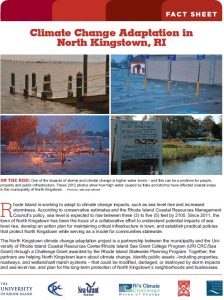

A model document for incorporating coastal hazards and climate change into state mandated Local Comprehensive Planning, together with maps that assess vulnerability, and recommendations based on lessons learned from other places for the community to adapt to rising seas.
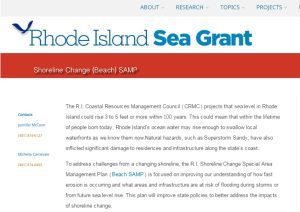

To address challenges from a changing shoreline, the Rhode Island Shoreline Change Special Area Management Plan (Beach SAMP) is focused on improving our understanding of how fast erosion is occurring and what areas and infrastructure are at risk of flooding during storms or from future sea level rise.
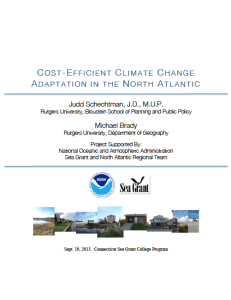

This report from a year-long study from Sea Grant and the NOAA North Atlantic Regional Team (NART) identifies some best practices that communities can use locally for adapting to climate change. “Cost-Efficient Climate Change Adaptation in the North Atlantic” is a compilation of best practices shared by 34 towns and cities (ME to VA) willing to share the steps that they have taken towards successful adaptation. The report also contains an interactive map.
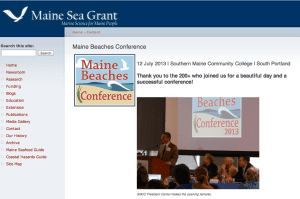

The Maine Beaches Conference provides continuing opportunities for communication and exchange of the most current information among beach stakeholders with diverse interests, and presents the findings from the state’s beach monitoring programs.
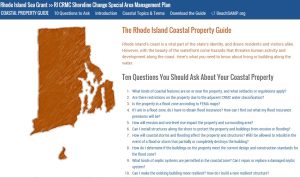

The coastal property guide is a publication and web-based tool for property owners, navigating them through 10 key questions related to issues from coastal erosion and sea level rise, to buffers and septic systems.


We support an array of interdisciplinary research in the biological sciences, including topics such as coastal geomorphology mapping and assessments on the cumulative effects of sea level rise and increased wave heights.
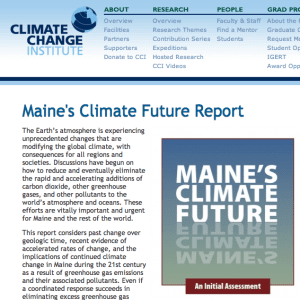

This report considers past change over geologic time, recent evidence of accelerated rates of change, and the implications of continued climate change in Maine during the 21st century as a result of greenhouse gas emissions and their associated pollutants. Maine Sea Grant’s Communication Coordinator, Catherine Schmitt worked with a multidisciplinary team to compile and edit the 2009 Report and several follow-up features on specific topics, and she is currently working on an update to the original report.
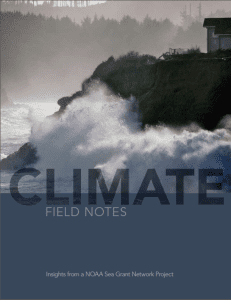

Oregon Sea Grant has a number of social scientists among our faculty and staff skilled in conducting surveys, interviews, and other forms of social science research, including vulnerability analyses.
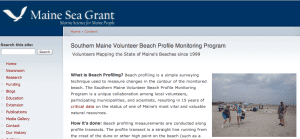

Beach profiling is a simple surveying technique used to measure changes in the contour of the monitored beach. The Southern Maine Volunteer Beach Profile Monitoring Program is a unique collaboration among local volunteers, participating municipalities, and scientists, resulting in 15 years of critical data on the status of one of Maine's most vital and valuable natural resources.
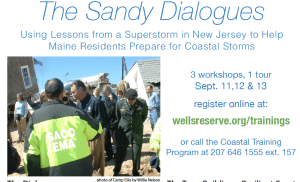

This workshop series featured municipal officials who survived Superstorm Sandy and Maine municipal officials and residents from Wells, Saco and Old Orchard Beach who traveled to New Jersey to see the aftermath of the storm first hand. During “The Sandy Dialogues” workshops in Wells and Saco presenters shared personal experiences about the storm, its aftermath and recovery.
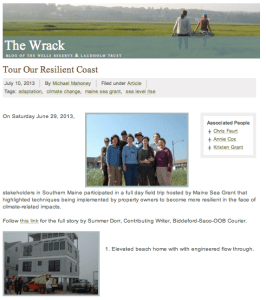

Maine Sea Grant has organized a number of tours, during which Southern Maine coastal property owners, local officials, and community members visit coastal properties in Saco, Wells, and Ogunquit where action has been or could be taken to make them more resilient to flooding, erosion, and extreme storm events.